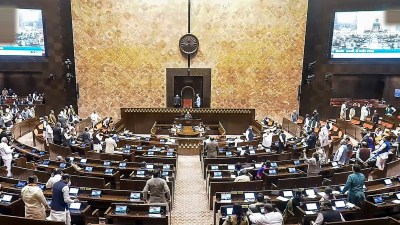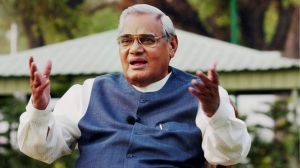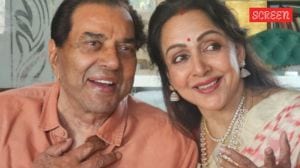Autumn is the season of gradual decay, and of the foreboding of sadness it brings. Amid sunset hues of falling chinar leaves this autumn, the world of Kashmiri politics will witness the start of a new season for one of its certified colossuses.
In the midst of senior colleagues at the National Conference headquarters in Srinagar on Thursday, Dr Farooq Abdullah, who has led the party for 34 years, signalled he won’t be seeking a fresh term as the party’s president, during a meeting of the party’s provincial leadership. He’s not going to retire from politics, though, he later confirmed.

The 85-year-old has served as Chief Minister of the state three times and as Srinagar MP four times (including the bypolls of 2017).
In a political career spanning decades, the first public office he held was as a Member of Parliament from the Srinagar Lok Sabha seat in 1980, which he currently also represents. The following year he was appointed president of the National Conference, a position his father and party founder Sheikh Mohammad Abdullah held before him.
After Sheikh Abdullah’s passing in August 1982, Farooq returned to take over as Chief Minister of Jammu and Kashmir at the age of 45. This government only lasted two years, following a split in the National Conference.
After a brief term as CM in 1986, Abdullah was elected Chief Minister again in the Assembly elections of 1987 and formed a coalition government with the Congress. As the state was enveloped in a phase of violence and an armed militancy gained ground, this was soon followed by over six years of President’s Rule, preceded by six months of Governors’ Rule in the state, even as the Assembly remained dissolved.
In the first election held afterwards, in 1996, Farooq received his first six-year term as Chief Minister (as per J&K’s Constitution, no longer operational). Thereafter, his son, Omar, took over the reins of the party.
Story continues below this ad
In January 2009, Omar was elected Chief Minister, the only CM after Farooq to get a full term at the helm in J&K as a full state. Farooq once again took over as party president, which he remained until now.
Late last year, the NC went through a round of block and district level polls, which were scheduled culminate in an election for the party president. However, sources said that poll was delayed due to the assumption that Farooq would be given another term unopposed, as per precedent.
On November 16, party general secretary Ali Mohammad Sagar issued a notification for polls to the position of party president, and the party’s district presidents and the recently announced constituency in-charges met on November 17, Thursday.
When Abdullah’s name was proposed again, he turned it down, urging the party to stay united and seeking to “make room for someone else” to lead the party.
Story continues below this ad
In the political vacuum that has existed in Jammu and Kashmir since its status was demoted to a UT in August 2019, most parties have had limited scope for political activity. Barring the District Development Council elections in December 2020, there only have been sporadic political rallies, and discourse has large been charted as reactions to moves by the Centre.
After serving over seven months under house arrest and being booked under the Public Safety Act, following the revocation of the special status of J&K, Abdullah focussed his energies on the fight to restore Article 370 to Jammu and Kashmir, leading the People’s Alliance for Gupkar Declaration.
Over the last two years, apart from attending Parliament, Farooq Abdullah has been visiting homes of NC members who may have been bereaved or made appearances at private celebrations and occasionally offering comment on the developments in J&K.
However, in his advanced age, few expected Abdullah to lead the party through another assembly election. With Omar firmly placing himself outside of an electoral contest, he is likely to be the leader to steer the National Conference through its next phase.
Story continues below this ad
Speaking of Farooq’s leadership, senior NC leader and a former minister in the state Choudhary Mohammad Ramzan said, “He is an unmatched leader. There is no parallel to him either within or outside J&K.” Ramzan said Farooq has led the party and the people through one of the most difficult phases in J&K’s history in the 1990s and “stood tall in any crisis” he has faced.
He said despite the party urging him to continue to remain president, Abdullah has declined stating the need to hand over reins to a younger leadership.
The party’s youth president Salman Sagar also spoke of Abdullah’s leadership, stating that he is amongst the tallest leaders in the country and that any politician, “should learn to emulate his humility.”
“Farooq Sahab has the ability to tune himself to anyone before him and that is why he is greatly admired by people of all ages in the party. His approach towards politics as well as public life is something we all learn from him and he will continue to lead us,” Sagar said.
Story continues below this ad
One of Dr Abdullah’s most senior colleagues and former member of his Cabinet, Rahim Rather, told The Indian Express, “Doctor Sahab has kept the party strong and united. There is no one who doesn’t draw inspiration from him. I hope his decision is not final.”
He added that as a new generation takes over the party, it will be challenging as “these are big shoes to fill”.

































